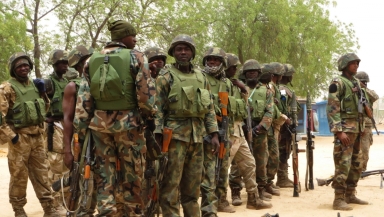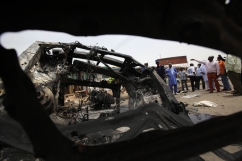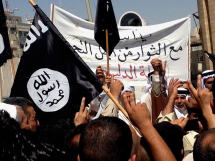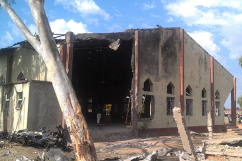
Boko Haram militants burnt down almost an entire town in northeast Nigeria on Wednesday, and initial reports suggest that hundreds of civilians were killed.
Insurgents attacked the town of Baga in Borno State just four days after overrunning the town's military base.
According to the BBC, much of the town was burnt down in the second attack and bodies littered the streets, with locals unable to bury their dead before they left. Senior government official, Musa Alhaji Bukar, told the BBC that residents who escaped the massacre said the population of Baga is now "virtually non-existent". It had previously been home to around 10,000 people.
Bukar added that Boko Haram was now essentially in control of Baga, along with 16 nearby towns. Borno State has been named the worst-affected by militant attacks. In May 2013 President Goodluck Jonathan declared a state of emergency there, as well as in Adamawa and Yobe states.
Government troops abandoned Baga's military base on Saturday after a surprise attack was launched by the Islamist militant group. The base was serving as the headquarters of the Multi-National Joint Task Force (MNJTF), a counter-terrorism unit with troops from Nigeria, Chad and Niger. According to some African media sources, it had just received a shipment of "sophisticated weapons" that are now thought to be in the hands of the militants.
More than 1,600 locals were forced to flee the area, with some drowning as they attempted to escape across Lake Chad. Christian Today has been unable to confirm the number killed in Wednesday's attack.
However, a regional expert has said that Boko Haram's rapid territorial expansion could well prove to be its downfall. Dr Khataza Gondwe, team leader for Africa and the Middle East at Christian Solidarity Worldwide (CSW), told Christian Today that the group is "clearly working hard to establish a large caliphate, but they may soon be overstretched".
"They are fighting on many levels," Gondwe said. "Fighting on so many fronts may ultimately be their undoing. However, there has to be a coordinated response to this and as long as the three main armies (Nigerian, Chadian and Cameroonian) act together against Boko Haram, I think we may see an unravelling of the organisation.

"That's not to say they are any less deadly at the moment, but I think [attacks such as] suicide bombings could be an attempt to seem bigger than they are – it doesn't take too many people to organise a suicide bombing, but the impact is pretty huge."
Gondwe also warned that in the wake of such atrocities as the shooting in Paris yesterday, and the growing influence of Islamic State in Syria and Iraq, the perilous situation in Nigeria could be forgotten.
"The danger for the entire world if Nigeria was to fall is greater than people seem to realise," she said.
"It's not going to happen, but it would be a greater danger for the rest of the world than is acknowledged. Syria and Iraq are important, but so is Nigeria."
Gondwe also warned about "coercion and cooperation" between jihadi groups such as Islamic State and Boko Haram operating in different countries.
"Boko Haram has always asserted its links to the international jihadist movement, and has said it received training from Somalia and Al Qaeda in the Islamic Maghreb (AQIM). There have always been links [with other jihadi groups]," she said.
"[Boko Haram leader Abubakar] Shekau acclaimed the Caliphate [Islamic State], and each group seems to be emulating or adopting tactics of the other."
















